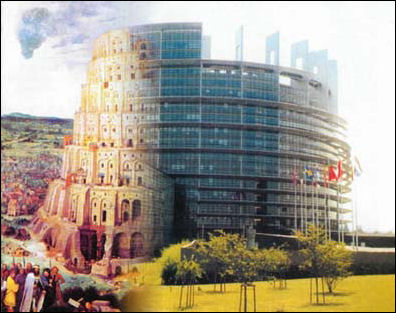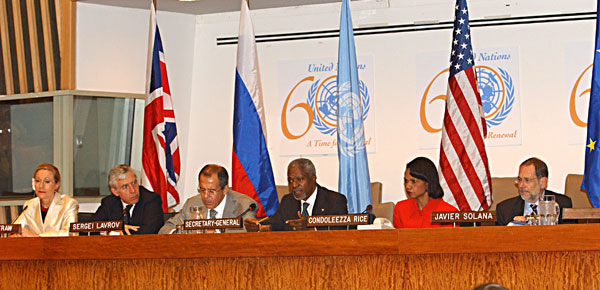Ten years ago, I sat in a restaurant in Mt. Adams, Cincinnati, with my friend Yvette. When President Bush came on the TV, the restaurant turned up the volume so we could all listen as he declared we would invade Iraq.
Yvette and I were both outraged. Did he know what he was doing? Did he not care about the facts? Did he not care about the illegality? Did he not understand? How could he betray our common values like this?
After listening to us, a woman in her late 30s - about 10 years older than we were at the time - turned to us and said, "He really had no choice. They are making us do this."
I've often that of that woman over the years. Does she realize yet how wrong she was? Does she still defend the decision?
Over the next 8 years, I was routinely called un-American or anti-American and a socialist- communist- fascist- terrorist-lover. I listened as our Constitution and Constitutional history was discarded with nothing more than racist and bigoted rants about how "those people" are different and "don't deserve" protection - as if the Constitution was built around a premise of who "deserved" it.
As if we somehow earn the right not to be tortured.
I listened as my Muslim brothers and sisters - and yes, they are my brothers and sisters even if we disagree on who Christ is - were treated as if they were less than. Less trustworthy than me. Less patriotic than me. Less humane than me. Less caring than me. Less worthy than me.
This started before we invaded Iraq, of course. It actually started before 9/11. It just grew uglier, more rampant and more acceptable following Iraq.
The threat was no longer a few Saudi extremists in the mountain region of Afghanistan - and as my Afghan flatmate is routinely fond of pointing out, they were Saudi, a country we have yet to invade and would never even consider doing so despite the millions flowing from it to the extremists. With Iraq, those who wanted it to be a Muslim problem felt justified - it was a problem from those people and those people were anyone with a long beard or a face veil. Or forget the long beard and face veil - they really just need a Koran or a Muslim-sounding name or Arab-looking skin.
And the detractors felt justified, too - the ones who blamed the US for 9/11 and felt the US was waging a war not against terror but against Islam. Afghanistan may have been justified and legal, but Iraq was neither and it was apparent to everyone in the world. Except the Bush administration and those they could lie to or strong-arm into submission.
Since then, I have been prove right and that woman in the restaurant wrong. There were no WMDs. There was no justification for Iraq. And while Saddam was a horrible man, if we were to invade every country with a horrible man leading it, we would be in an awful lot of wars that we really aren't ready to engage in.
As this 10 year anniversary comes and goes, I also have to think about Syria. If we hadn't gone to Iraq, would we have the desire and the gumption to assist in Syria more? In the wake of the Bush Administration's misuse of the concept, the international community has largely rejected unilateral action under the Responsibility to Protect. Libya - and now Syria - require Security Council resolution for any legitimacy, even though there are deep-seeded reasons to believe in crimes against humanity, if not genocide (without accepting or rejecting the legitimacy of the claims, this BBC radio programme suggests the fighting is principally based on religious lines, with an intent to target and destroy groups based on religious affiliation; I may post more on that later).
If we hadn't had Iraq - and if we hadn't butchered is so badly, invading with no real strategy for leaving - would we have the capacity, the will and the desire to help more with Syria? Or is Syria the Rwanda to Iraq's Somalia - the resulting genocide / crimes against humanity / war crimes that come when we are too afraid to act because the last time we did it ended badly?
Yvette and I were both outraged. Did he know what he was doing? Did he not care about the facts? Did he not care about the illegality? Did he not understand? How could he betray our common values like this?
After listening to us, a woman in her late 30s - about 10 years older than we were at the time - turned to us and said, "He really had no choice. They are making us do this."
I've often that of that woman over the years. Does she realize yet how wrong she was? Does she still defend the decision?
Over the next 8 years, I was routinely called un-American or anti-American and a socialist- communist- fascist- terrorist-lover. I listened as our Constitution and Constitutional history was discarded with nothing more than racist and bigoted rants about how "those people" are different and "don't deserve" protection - as if the Constitution was built around a premise of who "deserved" it.
As if we somehow earn the right not to be tortured.
I listened as my Muslim brothers and sisters - and yes, they are my brothers and sisters even if we disagree on who Christ is - were treated as if they were less than. Less trustworthy than me. Less patriotic than me. Less humane than me. Less caring than me. Less worthy than me.
This started before we invaded Iraq, of course. It actually started before 9/11. It just grew uglier, more rampant and more acceptable following Iraq.
The threat was no longer a few Saudi extremists in the mountain region of Afghanistan - and as my Afghan flatmate is routinely fond of pointing out, they were Saudi, a country we have yet to invade and would never even consider doing so despite the millions flowing from it to the extremists. With Iraq, those who wanted it to be a Muslim problem felt justified - it was a problem from those people and those people were anyone with a long beard or a face veil. Or forget the long beard and face veil - they really just need a Koran or a Muslim-sounding name or Arab-looking skin.
And the detractors felt justified, too - the ones who blamed the US for 9/11 and felt the US was waging a war not against terror but against Islam. Afghanistan may have been justified and legal, but Iraq was neither and it was apparent to everyone in the world. Except the Bush administration and those they could lie to or strong-arm into submission.
Since then, I have been prove right and that woman in the restaurant wrong. There were no WMDs. There was no justification for Iraq. And while Saddam was a horrible man, if we were to invade every country with a horrible man leading it, we would be in an awful lot of wars that we really aren't ready to engage in.
As this 10 year anniversary comes and goes, I also have to think about Syria. If we hadn't gone to Iraq, would we have the desire and the gumption to assist in Syria more? In the wake of the Bush Administration's misuse of the concept, the international community has largely rejected unilateral action under the Responsibility to Protect. Libya - and now Syria - require Security Council resolution for any legitimacy, even though there are deep-seeded reasons to believe in crimes against humanity, if not genocide (without accepting or rejecting the legitimacy of the claims, this BBC radio programme suggests the fighting is principally based on religious lines, with an intent to target and destroy groups based on religious affiliation; I may post more on that later).
If we hadn't had Iraq - and if we hadn't butchered is so badly, invading with no real strategy for leaving - would we have the capacity, the will and the desire to help more with Syria? Or is Syria the Rwanda to Iraq's Somalia - the resulting genocide / crimes against humanity / war crimes that come when we are too afraid to act because the last time we did it ended badly?




